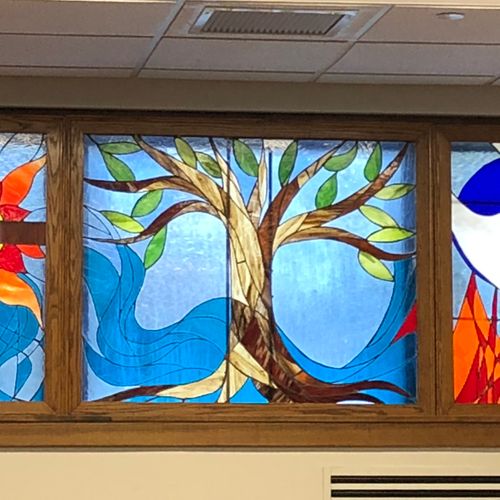
Beloved Members of St. Martin’s,
It deserves to be stated often: We are completely and totally not only part of creation, no matter how urban our settings; we are also completely dependent upon creation for our very lives. But beyond that, creation is a source of awe and wonder at the amazing providence and generosity of God, as this Sunday’s psalm, Psalm 19, reminds us in its opening lines:
The heavens declare the glory of God, * and the firmament shows the handiwork of the Lord.
From this weekend through October 6, both the Saturday 505 and the 10:30 Sunday services will use liturgical materials celebrating the International Season of Creation. These new Eucharistic prayers transition beautifully from Eucharistic Prayer C, which we have been praying throughout the summer. As we focus especially upon our upcoming stewardship drive, reminding ourselves of the stewardship of the Earth, and of the way we here at St. Martin’s model that both as a parish, and as individuals, seems like a no-brainer.
St. Martin’s has long been a diocesan leader in what is now called the “Good News Garden” movement in the Episcopal Church. In recognition of that, whether you are an active or indirect supporter of the garden, I want to invite you all join me in a special book study which will begin on September 22 at 9:00 am on Sundays before the 10:30 service. We will be reading and discussing the book Contemplative Gardening by my dear friend the Rev. Dr. Pamela Dolan.
To round off the season of creation, we will have our annual observation of the Feast of St. Francis on Saturday, October 5 at 4 pm—all animals and their human companions are invited to receive a blessing. You are also invited to bring photos of animals who are no longer with us for a remembrance.
Theologian Norman Wirzba has written extensively on the connection of faith and care for the Earth and all things on or within it:
The movement of sacrifice that characterizes God’s life also characterizes created life. Creation is an immense altar upon which the incomprehensible self-offering love of God is daily made manifest. Here in the living and dying of creatures, in the seed that dies into the ground, we discover that sacrificial offering is a condition for the possibility of the membership of life we call creation. Creation, understood as God’s offering of creatures to each other as food and nurture, reflects a sacrificial power in which life continually moves through death to new life. (Wirzba, Food and Faith: A Theology of Eating, p. 126)
The way we pray and the words we say are important: they shape the way we believe and think. Therefore I ask you mindfully to consider the prayers we pray for the next several weeks, and the way those ideas and images shape your sense of gratitude and wonder. As one of the collects for creation reminds us:
Creating God, your name is written on every leaf, every bird, every river, every stone, every living being. We praise and worship you for the magnificence of your creation. Make us attentive to the wounds of the earth and willing to work for the healing of the whole creation, through Jesus Christ, our Savior and Lord. Amen.
Join me in giving thanks for this beautiful Earth, our only home, and all its creatures, our beloved neighbors.
In Christ,
Mother Leslie+
PS-- How can you get more information, or get involved in your own way in learning what our church believes about the care and protection of our beautiful planet? Try these links below:
The Episcopal Public Policy Network’s page for ways to get involved in protecting creation: https://www.episcopalchurch.org/ministries/office-government-relations/creation-care/
Link to the Website for the Season of Creation: https://seasonofcreation.org
Prayers for the Season of Creation: https://www.episcopalrelief.org/let-us-pray/season-of-creation-prayers/